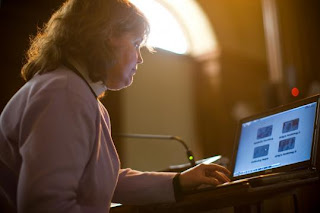 One of our assumptions among the members of the Evangelism Commission is that Christians will never reach full maturity in their faith, and never begin to experience the fullness of being a follower of Jesus, until they find a way to articulate their faith.
One of our assumptions among the members of the Evangelism Commission is that Christians will never reach full maturity in their faith, and never begin to experience the fullness of being a follower of Jesus, until they find a way to articulate their faith.Ada Calhoun writes in on her blog as Slate.com about her journey to becoming Christian, and her journey to being able to admit that she is Christian.
She says "I am a closet Christian. At least, I was until now. Because in my circle, nothing is more embarrassing than being religious."
No doubt Ada is not alone. Many of us are closet Christians. How do we "tell what we have seen and heard" if we lock ourselves away in closets?It was Sunday morning in my scruffy Brooklyn, N.Y., neighborhood, and I was wearing a dress. Walking to the subway, I ran into a friend heading home from yoga class. She wore sweats and carried her mat over her shoulder. "Where are you going so early all dressed up?" she asked, chuckling. "To church?" We shared a laugh at the absurdity of a liberal New Yorker heading off to worship.
The real joke? I totally was.
Inside the church, it's cool and quiet. I read the Collect of the day in the Book of Common Prayer, which urges us: "While we are placed among things that are passing away, to hold fast to those that shall endure." My recent layoff no longer seems like the end of the world. I take Communion and exchange the peace and listen to the sermon. As I'm walking back up the aisle, I feel reoriented and calmer, the indignities of the week shift into perspective.
These moments are not only sacred; they are secret. Outside, on the steps of the downtown Manhattan church, I think I see someone familiar coming down the sidewalk, and I bolt in the other direction.
Why am I so paranoid? I'm not cheating on my husband, committing crimes or doing drugs. But those are battles my cosmopolitan, progressive friends would understand. Many of them had to come out -- as gay, as alcoholics, as artists in places where art was not valued. To them, my situation is far more sinister: I am the bane of their youth, the boogeyman of their politics, the very thing they left their small towns to escape. I am a Christian.
Read the rest of her story here.
H/T to Episcopal Cafe.



















